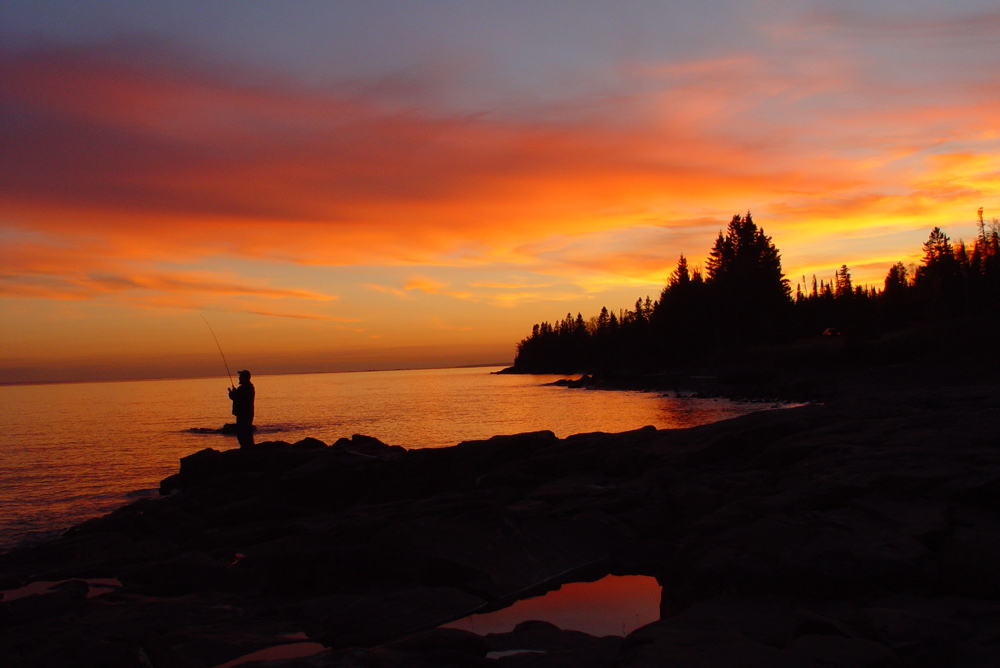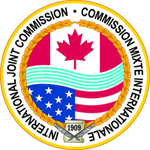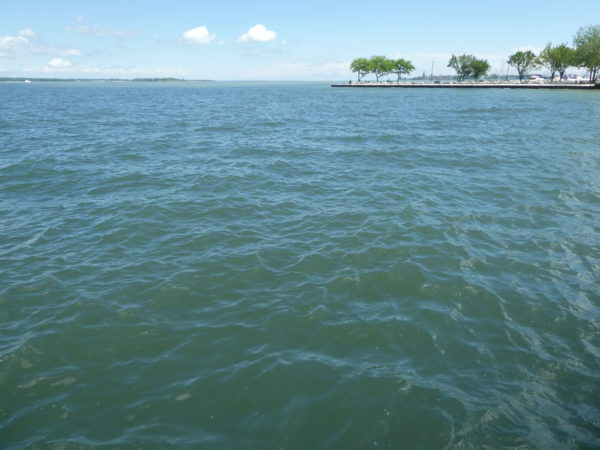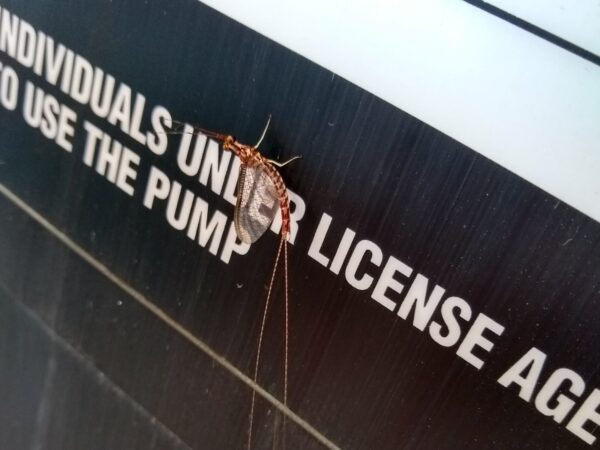
If you care about the Great Lakes, it’s time to speak out.
That’s the message from the International Joint Commission (IJC) as it extends an urgent call-out to the public to get involved in protecting the water that touches the shores of eight states and two Canadian provinces.
The IJC will hold public meetings in six different locations to try to get as many people to participate as possible.
The IJC’s Public Affairs Officer Sally Cole-Misch tells Great Lakes Now the commission is seeking comments on a recently released progress report on Great Lakes Water Quality (see links below).
While the report is organized around nine large topics, the IJC welcomes any and all public concerns about the health and the future of the Great Lakes.
The Threat of War Created the International Joint Commission
 Cole-Misch says some people might not know about the work IJC has been doing since it was formed more than a hundred years ago. She says, “We start everything with science. IJC is a unique organization because it operates as a binational, nonpartisan group that seeks to reach consensus to resolve issues. There is nothing like it in the world.”
Cole-Misch says some people might not know about the work IJC has been doing since it was formed more than a hundred years ago. She says, “We start everything with science. IJC is a unique organization because it operates as a binational, nonpartisan group that seeks to reach consensus to resolve issues. There is nothing like it in the world.”
So, what prompted the creation of the International Joint Commission? Cole-Misch says it was the threat of war.
She says, “The U.S. and Canada almost came to warfare over boundary waters in the late 1800’s. To prevent that, both countries signed a treaty that created the IJC in 1909.”
At first, she says, the majority of issues the IJC had to resolve involved the quantity of water used by Canada and the U.S., without so much discussion about water quality. The emphasis was simply to make sure communities were getting the water they needed.
But she says all that changed in the late 1960’s when Lake Erie became so polluted with oily sludge that one of its tributaries would regularly catch fire. Cole-Misch says, “That’s when we began to understand as a continent how badly we were treating all our waterways.”
Since that time, the bi-national commission has been the guardian of the Great Lakes, prompting new laws and awareness about the largest group of freshwater lakes on earth.
Cole-Misch says one of the biggest accomplishments of the IJC is the creation of the Great Lakes Water Quality Agreement, which gives the IJC the responsibility to monitor and report on progress by Canada and the US to accomplish the Agreement’s goals and objectives, to provide recommendations on further actions the countries can take, and to consult with the public regularly to “increase awareness of the inherent value of the waters of the Great Lakes, of the issues related to the quality of these waters, and the benefit of taking individual and collective action to restore and protect these waters.”
Recently, the IJC proposed new ways to cut back on nutrient run-off and pollution from microplastics and PBDE’s – Polybrominated Diphenyl Ethers – which are flame retardants found in clothing, furniture and other products that wind up in the Great Lakes.
Other areas of concern for IJC are management of the lake shores, invasive species, discharges from ocean-going vessels, contamination of groundwater, and climate change impact.
Now Is the Time to Speak Up for the Great Lakes
Cole-Misch tells Great Lakes Now, “We are saying now is the time to speak up for the Great Lakes, because the governments have reported on their progress and we’ve released an initial assessment. We also want to hear people’s thoughts and experiences, and learn about their connections to the Great Lakes, and how much they treasure them.”
You can attend a meeting in person, but you can also go on line to participate in various surveys and add your input in many other ways.
The deadline is April 15th.
- To check out the progress report from the governments of Canada and the United States released last fall, go here: progress report
- To check out the IJC’s draft assessment report released in January of 2017, go here:draft assessment report
- To register to attend one or more of the sessions go to IJC’s website, Participate IJC and the IJC’s social media outlets.
- Also check out Great Lakes Now’s coverage of IJC at : greatlakesnow.org
Who Runs the International Joint Commission?
Three commissioners from each country are chosen by Canada’s Prime Minister and the President of the United States. The commissioners serve as long as those leaders serve. One U.S. commissioner left the IJC in the fall for personal reasons and has yet to be replaced.
As of this writing, newly-elected President Donald J. Trump is leaving in place U.S. Commissioners Lana Pollack, former President of the Michigan Environmental Council and a former State Senator who is considered the architect of Michigan’s landmark 1990 polluter pay statute. She was appointed in 2010 by President Barack Obama.
President Trump is also leaving in place Rich Moy who was a Montana land and water consultant and Senior Fellow at the Center of Natural Resources and Environmental Policy at the University of Montana. He has worked extensively with the U.S. and Canada on water allocation, fisheries, water quality, reservoir operations and drought management issues. He is also an Obama appointee.
If President Trump appoints a new IJC Commissioner, he or she will be approved by the U.S. Senate like any other cabinet nominee.
The three Canadian IJC commissioners – Gordon Walker, Benoit Bouchard and Richard Morgan – were appointed by former Prime Minister Stephen Harper. Commissioner Bouchard’s term is up in June of 2017. Current Prime Minister Justin Trudeau will replace the other Canadian commissioners when their terms expire.




